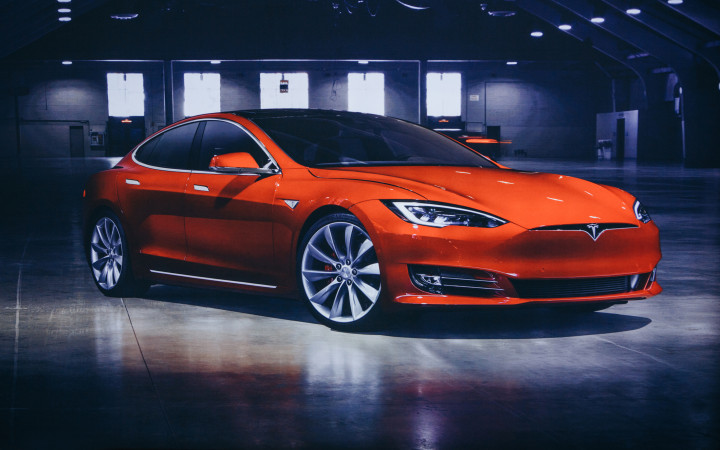Today’s Wonder of the Day was inspired by Caroline from Liberty. Caroline Wonders, “What are the benefits and disadvantages of electric cars?” Thanks for WONDERing with us, Caroline!
Do you ever dream about your future car? Maybe you’d rather drive a truck or SUV. There are many decisions to make when choosing a vehicle. New or used? Manual or automatic? Not to mention the make, model, and color! Of course, when you’re old enough to drive, you’ll likely have to make another decision: Would you want an electric car?
Electric vehicles (EVs) are becoming more common each year. With more people concerned about carbon emissions and climate change, you can expect to see many more EVs on the road in future decades. With this shift comes many other changes. After all, EVs are quite different from traditional gas-powered vehicles.
If you’ve been WONDERing with us for a while, you may have read about hybrid vehicles. These are powered by a mixture of electricity and gas. Most hybrid cars can travel up to 50 miles on electricity alone. For longer distances, they rely on gasoline. That’s the main difference between hybrids and EVs—electric vehicles rely on electricity alone.
What’s it like to drive an EV? Today’s drivers say there are a few things to get used to when switching to a vehicle powered by electricity. First of all, there’s no gear shift or clutch. Instead, drivers use a simple selector to put EVs in park, neutral, drive, and reverse.
Since they’re powered by electricity, EVs also apply full power as soon as the driver hits the accelerator. This may help them speed up faster than gas-powered cars, so drivers must adjust with this in mind. Additionally, EVs use regenerative braking. That means they slow down as soon as the driver lifts their foot off the accelerator. Drivers end up using their brakes much less.
There are many benefits of owning an EV. The most obvious is that EVs don’t rely on gasoline. Many people prefer EVs because they reduce their carbon footprint. This also means drivers of electric cars don’t need to stop at the gas pump—in the long run, this can save a great deal of money.
EVs are also low maintenance. For example, they don’t need oil changes. The regenerative braking system also means their brake pads don’t need to be changed as often. Many drivers also report that EVs feel more secure. This is likely due to the placement of the battery, which sits just below the seats. This helps keep the vehicle’s center of gravity low.
Of course, there are also drawbacks to EVs. Their range is lower than most gas-powered or hybrid vehicles. Most EVs can drive over 200 miles on one full charge. At that point, though, they need to be plugged in. With limited charging stations in many areas, this could cause problems on long trips.
Drivers who want to charge their EVs at home also have to install charging stations, which can be a complicated process. Additionally, the batteries are expensive to replace. Finally, while EVs may save drivers money on gas and maintenance in the long run, the price of purchasing an EV is often higher than that of a gas-powered vehicle.
What do you think? Would you want an electric car? There are plenty of reasons for either choice. It’s a good thing you have plenty of time to make up your mind!
Standards: CCRA.R.4, CCRA.R.10, CCRA.L.3, CCRA.L.6, CCRA.R.1, CCRA.SL.1, CCRA.L.1 CCRA.W.2, CCRA.L.2, CCRA.R.4, CCRA.SL.2,




